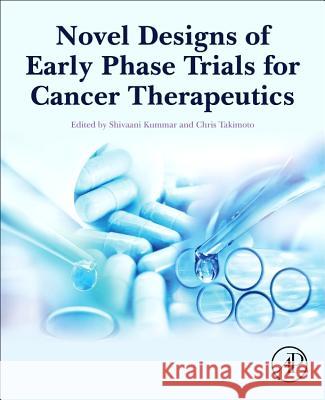Novel Designs of Early Phase Trials for Cancer Therapeutics » książka
topmenu
Novel Designs of Early Phase Trials for Cancer Therapeutics
ISBN-13: 9780128125120 / Angielski / Miękka / 2018 / 234 str.
Kategorie:
Kategorie BISAC:
Wydawca:
Academic Press
Język:
Angielski
ISBN-13:
9780128125120
Rok wydania:
2018
Ilość stron:
234
Waga:
0.47 kg
Wymiary:
23.11 x 19.05 x 1.27
Oprawa:
Miękka
Wolumenów:
01
Dodatkowe informacje:
Wydanie ilustrowane











